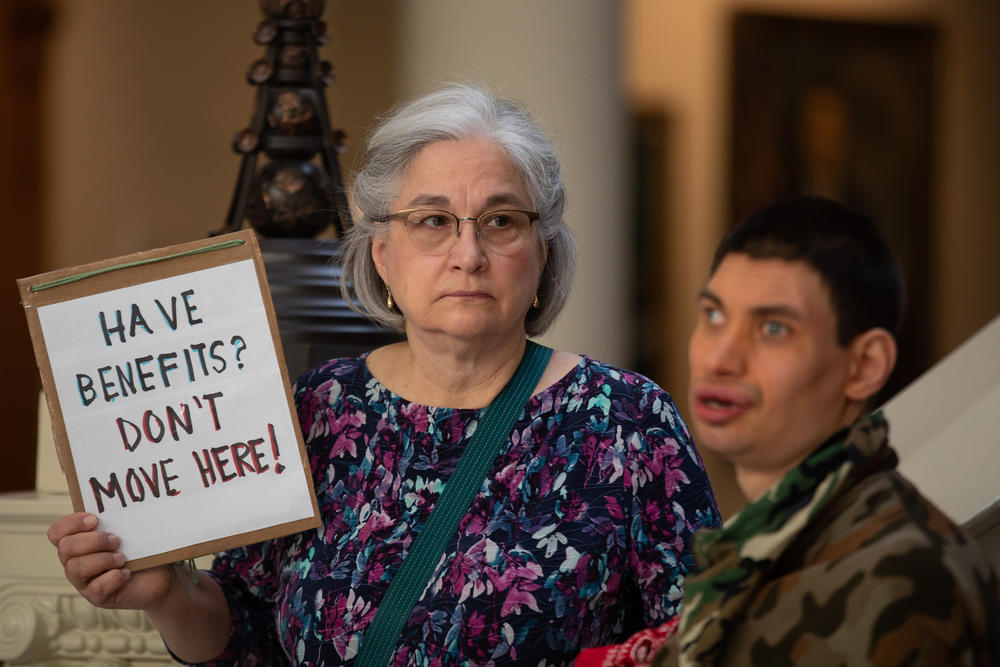
Caption
Roswell resident Celeste Chippero stands with her son, Peter, during a press conference at the Capitol in February, when families and advocates called for state lawmakers to bolster disability services.
Credit: Riley Bunch/GPB News


